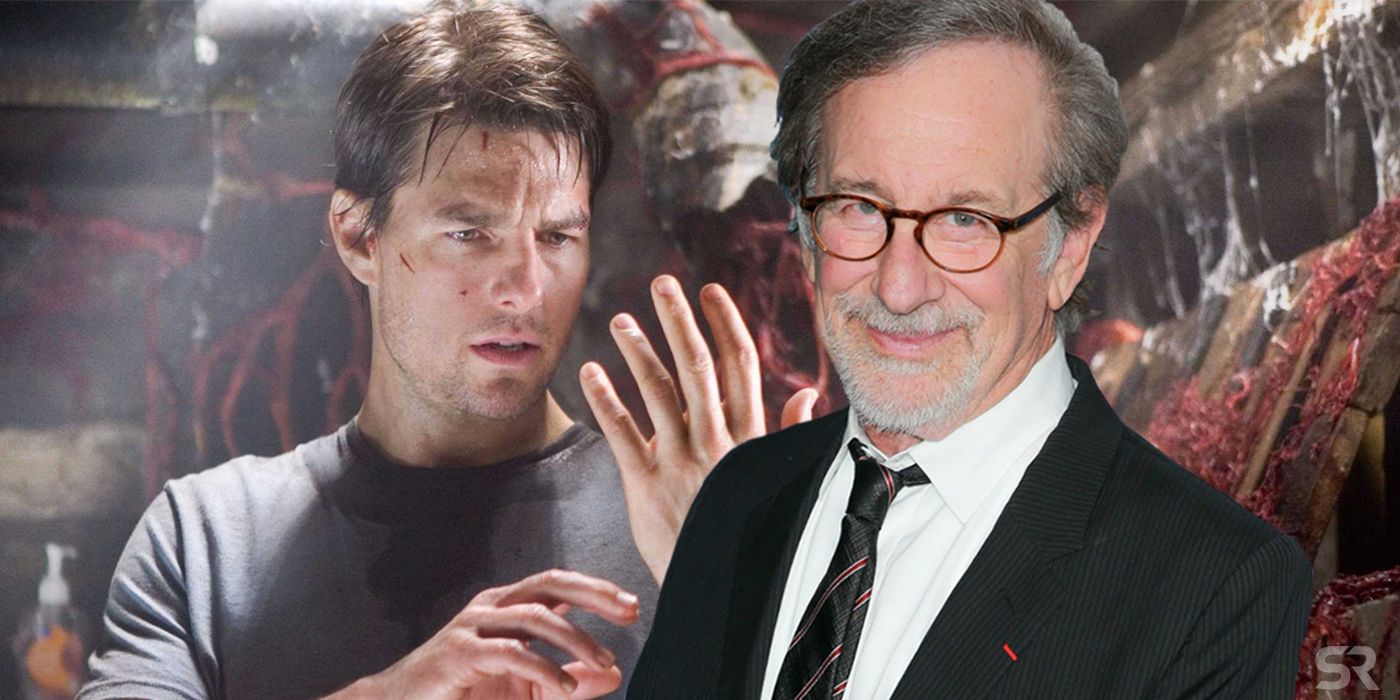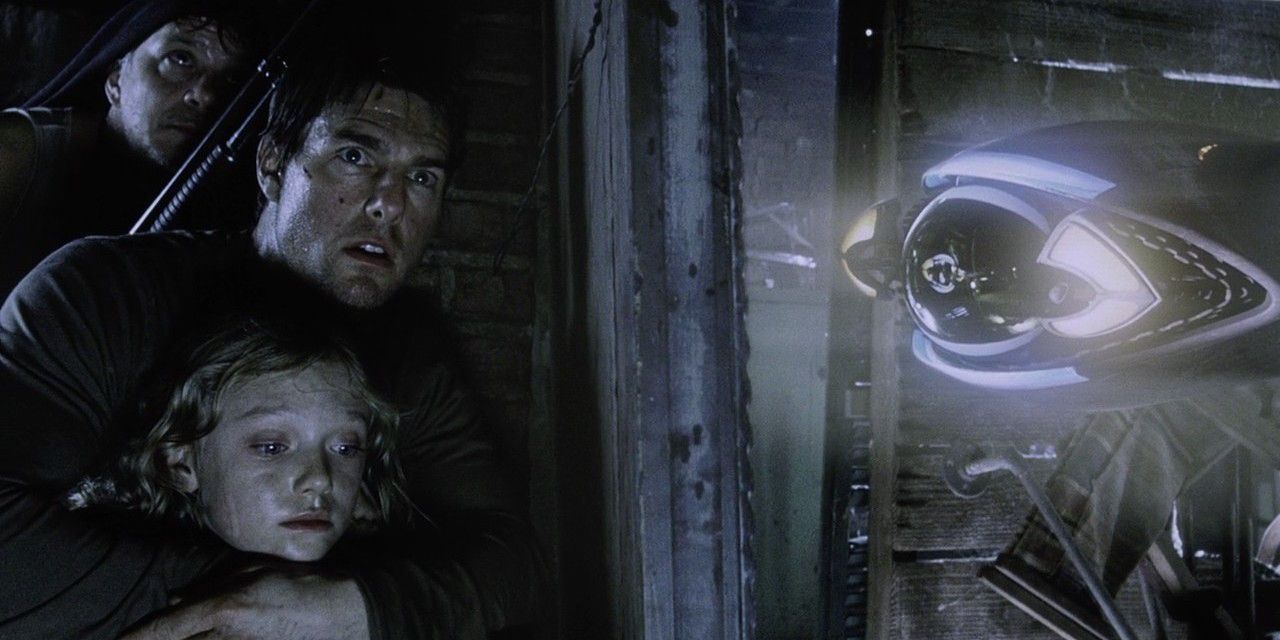
Thirteen years after the movie's release, filmmaker Steven Spielberg finally admits that the ending of his War of the Worlds adaptation doesn't make sense. Despite receiving mostly positive reviews with a 75 percent score on Rotten Tomatoes, War of the World's final act has long been regarded as the movie's standout flaw.
In 2005, Spielberg directed an adaptation of H. G. Wells' science fiction novel War of the Worlds. The movie centers around a divorced father named Ray (Tom Cruise) who, after lackluster attempts to bond with his two children (played by Dakota Fanning and Justin Chatwin), is forced to suddenly protect them from a violent alien invasion. The family travels aimlessly for safety, meeting unique characters along the way as they do whatever is necessary to survive. The movie also stars Tim Robbins, Miranda Otto, and Morgan Freeman as the movie's narrator, and Spielberg recently opened up about his dissatisfaction with the ending.
Related: First Look At BBC's War of the Worlds As Filming Begins
In James Cameron's Story of Science Fiction, a written word companion to James Cameron's six-part AMC series exploring the relationship between science fiction and film, Spielberg opened up about his adaptation of War of the Worlds, and how he struggled coming up with a decent ending. After mentioning how Ray's relationship with his children was meant to be the "nucleus" of the movie (Spielberg once referred to Ray's emotional journey as an antithesis of Roy Neary's relationship with his children in Close Encounters of the Third Kind), he told Cameron that he "never could figure out how to end that darn thing," referring to the abrupt finale. He outright said, "The film doesn't have a good ending."

The major critique regarding the movie's ending has to do with the aliens' Achilles heel. In the final act, tension comes to an abrupt standstill once it's discovered that the aliens can not survive among the various microbes inhabiting the planet. Once they leave their crafts (referred to in the movie as "Tripods") and are exposed to the air, they die upon contact. As a courtesy, Cameron refers to the similarly uneventful payoff in Wells' original ending, saying, "I don't think H. G. Wells could figure it out. The common cold takes out the bad guys."
M. Night Shyamalan faced similar criticism with his own alien movie Signs, with audiences wondering how an alien race that is evidently smart enough to master space travel attempts to invade a planet on which they physically can not survive. And, unfortunately, Spielberg didn't end up faring any better with his handling of extraterrestrials when he released Indiana Jones and the Kingdom of the Crystal Skull only three years after War of the Worlds.
More: 15 Sci-Fi Movies & Shows You Had NO IDEA Were Based On True Events
Source: James Cameron's Story of Science Fiction (via: Nick de Semlyen)
from ScreenRant - Feed https://ift.tt/2DdIt3k

![The X-Men's [SPOILER] Just Gave Their Life For Cyclops](https://4.bp.blogspot.com/-O3EpVMWcoKw/WxY6-6I4--I/AAAAAAAAB2s/KzC0FqUQtkMdw7VzT6oOR_8vbZO6EJc-ACK4BGAYYCw/w680/nth.png)

0 Comments